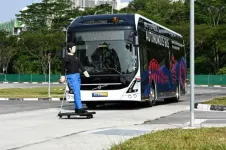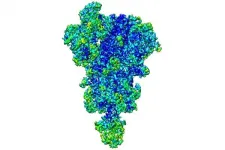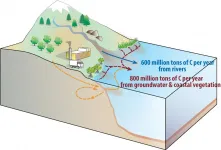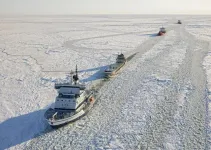INFORMATION:
Note to Editors:
Paper 'Complementary and competitive framing of driverless cars: framing effects, attitude volatility, or attitude resistance?' published online in International Journal of Public Opinion Research. 14 Feb 2021. DOI: 10.1093/ijpor/edab001
Paper 'Driving without the brain? Effects of value predispositions, media attention, and science knowledge on public willingness to use driverless cars in Singapore' published in Transportation Research Part F: Traffic Psychology and Behaviour. Volume 71, May 2020, Pages 49-61. DOI: 10.1016/j.trf.2020.03.019
Media contact:
Foo Jie Ying
Manager, Corporate Communications Office
Nanyang Technological University
Email: jieying@ntu.edu.sg
About Nanyang Technological University, Singapore
A research-intensive public university, Nanyang Technological University, Singapore (NTU Singapore) has 33,000 undergraduate and postgraduate students in the Engineering, Business, Science, Humanities, Arts, & Social Sciences, and Graduate colleges. It also has a medical school, the Lee Kong Chian School of Medicine, established jointly with Imperial College London.
NTU is also home to world-class autonomous institutes - the National Institute of Education, S Rajaratnam School of International Studies, Earth Observatory of Singapore, and Singapore Centre for Environmental Life Sciences Engineering - and various leading research centres such as the Nanyang Environment & Water Research Institute (NEWRI) and Energy Research Institute @ NTU (ERI@N).
Ranked amongst the world's top universities by QS, NTU has also been named the world's top young university for the past seven years. The University's main campus is frequently listed among the Top 15 most beautiful university campuses in the world and has 57 Green Mark-certified (equivalent to LEED-certified) buildings, of which 95% are certified Green Mark Platinum. Apart from its main campus, NTU also has a campus in Novena, Singapore's healthcare district.
Under the NTU Smart Campus vision, the University harnesses the power of digital technology and tech-enabled solutions to support better learning and living experiences, the discovery of new knowledge, and the sustainability of resources.
For more information, visit http://www.ntu.edu.sg.
Safety concerns determine level of public support for driverless vehicles, finds NTU study
Findings have implications for improving adoption rate of driverless vehicles
2021-03-18
(Press-News.org) When it comes to the use of driverless vehicles, an individual's support for their adoption hinges on how safe they are, rather than their economic impact or privacy concerns stemming from the data they might collect, a Nanyang Technological University, Singapore (NTU Singapore) study of 1,006 Singaporeans has found.
The NTU Singapore study led by the Wee Kim Wee School of Communication and Information exposed its participants to positive and negative blog posts about driverless vehicles and their safety, their impact on jobs and the economy, and their collection of data. These three 'frames' - how something is presented to the public - were selected from a content analysis of The Straits Times news reports from 2015 to 2020.
The respondents were then asked if they thought that driverless cars were bad/good, foolish/wise, unpleasant/pleasant, useless/useful, dangerous/safe. Their support for driverless cars was also measured on a five-point scale.
After being exposed to information on how potentially dangerous driverless vehicles could be, the respondents held less favourable attitudes towards driverless vehicles even when showed a positive blog post on how autonomous vehicles (AVs) could create many high-paying jobs, or on how driverless cars could provide convenience and efficiency using the data they collect, for example by remembering our schedules or monitoring our preferences.
Professor Shirley Ho, who led the research team, said: "One major debate about driverless cars, which hinges on the use of artificial intelligence technologies, lies in their limitation to make judgments that lie at the intersections of human values, moral rights, ethics, and social norms. This limitation may present safety risks, particularly in cases when traffic accidents are unavoidable. This could potentially explain why the negative safety messages in our study had a stronger effect on the respondents."
She added that with the drive towards AV adoption globally, these findings provide policymakers with important insights. Singapore has expanded AV testing to cover all public roads in its western areas and aims to serve three areas with driverless buses from next year.
Prof Ho, who is also NTU's Research Director for Arts, Humanities, Education and Social Sciences, said: "With AVs expected to be integrated into Singapore's land transport master plan, there is an urgent need for policymakers to examine the different strategies to communicate about driverless cars to the Singapore public.
"Our study has found that it is important to address the safety considerations. Even after all the safety measures are in place, public consultation is still necessary to ensure that the public's concerns, especially those of a moral and ethical nature, are taken into consideration in the process of developing the technology, before launching driverless cars on a large scale."
The study was published in the International Journal of Public Opinion Research in February.
Pre-existing values drive perception of AVs
These findings build on a 2020 NTU study that surveyed the same sample of 1,006 Singaporeans. This study, published in the scientific journal Transportation Research, found that public willingness towards using driverless cars, which is "marginally positive", is driven by their value predispositions such as their perception of the risks and benefits of AVs, as opposed to general science knowledge or AV-specific knowledge.
In this study, Prof Ho and her team also found that while the public acknowledged the potential benefits of AVs - such as helping the elderly and disabled to be more independent, lowering fuel consumption, and increasing human productivity - they also had a high level of risk perception towards driverless cars. In addition to technical errors that may lead to safety consequences, the respondents were concerned about potential security issues from hackers and privacy issues caused by exact location tracking capabilities found in AVs.
Prof Ho said: "These findings suggest that driverless cars may not achieve widespread usage in Singapore if there are no efforts to promote it, limiting the degree to which the society can reap the technology's benefits."
ELSE PRESS RELEASES FROM THIS DATE:
The hidden machinery of a photosynthetic giant revealed
2021-03-18
The collaborative work is published online in the journal Communications Biology on March 8th, 2021.
The power of photosynthesis
Photosynthesis represents the only biological process, which converts the energy of sunlight into chemically stored energy. On molecular level, the photosynthetic key enzymes called photosystems are responsible for this conversion process. Photosystem I (PSI), one of the two photosystems, is a large membrane protein complex that can be present in different forms - as monomers, dimers, trimers or even tetramers.
New isolation technique helps revealing ...
COVID-19 denial depends on a population's trust in social institutions
2021-03-18
An international team of scholars studied how the COVID-19 pandemic has impacted Europeans' stress levels and their trust in their national governments and the healthcare systems. They found that respondents were most stressed by the state of the national economy, and only after that, by the risk of catching COVID-19 and possibly being hospitalized. The results of the study were published in Royal Society Open Science.
The authors of the study represent over 50 universities. Among them is Dmitrii Dubrov, Junior Research Fellow at the HSE Center for Sociocultural Research, who developed and organized the global survey, COVIDiSTRESS. The researchers studied the psychological ...
Image methods tested on a SARS-CoV-2 protein improve the 3D reconstructions of macromolec
2021-03-18
An international study led by the University Complutense of Madrid (UCM) proposed new computational image processing methods that improve the analysis and three-dimensional reconstruction of biological macromolecules.
Currently, determining the composition (i.e., the sequence of amino acids) of macromolecules such as proteins is relatively simple; however, determining the shape in which they are ordered in a three-dimensional structure is not. The new methodology, published in Nature Communications, improves the visualization of the 3D reconstructions obtained through cryogenic electron microscopy, as well as their quality.
"This study helps us broaden our understanding of proteins ...
Twice as much carbon flowing from land to ocean than previously thought
2021-03-18
Every year 600-900 million tons of carbon flow through rivers to the ocean either as particles or in dissolved form. Researchers have known for a long time that this does not represent the total amount of carbon that gets transported from the land to the ocean. But the remaining contributors mostly from coastal ecosystems, such as carbon-rich mangrove forests, and from groundwater discharge into the ocean have been notoriously difficult to measure.
A new study published in the journal Global Biogeochemical Cycles and spearheaded by Dr. Eun Young Kwon, project leader at the IBS Center for Climate Physics South Korea provides new estimates of this elusive component of the global carbon cycle. The study makes use of the existence of two stable carbon isotopes, 12C and 13C, with the latter ...
What is the probability of ships becoming beset in ice in Arctic waters?
2021-03-18
Statisticians have calculated the probability of ships of different Polar Ship Categories becoming beset in ice along the Northern Sea Route. Their data will help assess the risks of maritime traffic in the Arctic.
The results of the new study, published recently in the Cold Regions Science and Technology journal, will support safer maritime transport planning and the prevention of oil spills. The results will also benefit authorities that regulate maritime traffic by providing a foundation for statutes and legislation. A comprehensive approach to computing helps shipping companies plan transport routes.
Tankers more common on the Northern Sea Route
The Northern Sea Route is attracting more tankers and cargo ships travelling from Russia and ...
Scientists examine more than 60 teeth of stegosaurs from Yakutia
2021-03-18
Powerful and squat stegosaurs are now one of the most recognisable dinosaurs: they are easily identified by the spines on the tail and the bony plates on the back - osteoderms. The representatives of this group lived about 165-125 million years ago, during the Jurassic and early Cretaceous periods. They were five to seven metres long and had a disproportionately small head. Their teeth were therefore quite small - about a centimetre in height and about the same in width.
Palaeontologists from St Petersburg University worked together with colleagues from: the Zoological Institute of the Russian Academy of Sciences; the ...
Leading blue energy revolution
2021-03-18
The ocean covers about 70% of the Earth's surface area and is the largest reservoir of energy. Researchers have been exploring the approach for harnessing ocean energy to solve the world energy crisis and pollution problems caused by thermal power generation. The nanogenerator, including piezoelectric, triboelectric, and pyroelectric nanogenerators, is one of the key technologies for mechanical energy conversion. The triboelectric nanogenerator (TENG) makes use of the triboelectric effect and electrostatic induction to harvest mechanical energy based on contact or sliding electrification.
However, conventional TENG device is often based on solid/solid contact, and it is hard to ensure the contact intimacy of the two tribo-materials. In the meanwhile, the material surfaces will wear or become ...
Research reveals human immune system reduces potency of antibiotics
2021-03-18
Research from the University of Kent's School of Biosciences has revealed that a molecule produced by the human immune system can severely diminish the potency of certain antibiotics.
This may explain why antibiotics effective in laboratory settings can be less effective at clearing infections in humans.
The research findings, which have been published in the journal Archives of Microbiology, reveal that nitric oxide, a molecule produced by our immune systems, can render aminoglycoside antibiotics ineffective when used against E. coli strains isolated from ...
The impact of geopolitical boundaries on cycad conservation efforts
2021-03-18
Geopolitical boundaries can have a profound effect on the protection of threatened species. A case in point is the native cycads of the United States. A recent review paper written by researchers at the Western Pacific Tropical Research Center at the University of Guam highlights extinction risks of cycad species that occur in U.S. controlled lands and the profound effect geopolitical boundaries has had on the protection of these threatened species. The paper appears in the December 2020 issue of the MDPI journal Diversity.
Cycads are the most threatened plant order worldwide. This is due to a combination of factors including habitat loss, poaching predation by invasive species, and lack of appropriate ...
Using ships themselves to monitor and predict waves
2021-03-18
Shipping provides the very foundation for world trade, by moving an estimated 11 billion tonnes of goods a year from where they are produced to where they will be used. From TVs to toasters, soap to sugar -- much of it moves over the waves.
Yet for ships plying the open ocean and for offshore industries, waves present an enormous challenge --because they can increase operational risks, reduce operating efficiency, and be dangerous if large enough and not handled well -- and they can be difficult to predict.
Ships can access information about wave heights, directions and frequency, but those data may be expensive to obtain or delayed because of satellite communication limitations, says Zhengru ...
LAST 30 PRESS RELEASES:
Genetics help explain who gets the ‘telltale tingle’ from music, art and literature
Many Americans misunderstand medical aid in dying laws
Researchers publish landmark infectious disease study in ‘Science’
New NSF award supports innovative role-playing game approach to strengthening research security in academia
Kumar named to ACMA Emerging Leaders Program for 2026
AI language models could transform aquatic environmental risk assessment
New isotope tools reveal hidden pathways reshaping the global nitrogen cycle
Study reveals how antibiotic structure controls removal from water using biochar
Why chronic pain lasts longer in women: Immune cells offer clues
Toxic exposure creates epigenetic disease risk over 20 generations
More time spent on social media linked to steroid use intentions among boys and men
New study suggests a “kick it while it’s down” approach to cancer treatment could improve cure rates
Milken Institute, Ann Theodore Foundation launch new grant to support clinical trial for potential sarcoidosis treatment
New strategies boost effectiveness of CAR-NK therapy against cancer
Study: Adolescent cannabis use linked to doubling risk of psychotic and bipolar disorders
Invisible harms: drug-related deaths spike after hurricanes and tropical storms
Adolescent cannabis use and risk of psychotic, bipolar, depressive, and anxiety disorders
Anxiety, depression, and care barriers in adults with intellectual and developmental disabilities
Study: Anxiety, gloom often accompany intellectual deficits
Massage Therapy Foundation awards $300,000 research grant to the University of Denver
Gastrointestinal toxicity linked to targeted cancer therapies in the United States
Countdown to the Bial Award in Biomedicine 2025
Blood marker from dementia research could help track aging across the animal world
Birds change altitude to survive epic journeys across deserts and seas
Here's why you need a backup for the map on your phone
ACS Central Science | Researchers from Insilico Medicine and Lilly publish foundational vision for fully autonomous “Prompt-to-Drug” pharmaceutical R&D
Increasing the number of coronary interventions in patients with acute myocardial infarction does not appear to reduce death rates
Tackling uplift resistance in tall infrastructures sustainably
Novel wireless origami-inspired smart cushioning device for safer logistics
Hidden genetic mismatch, which triples the risk of a life-threatening immune attack after cord blood transplantation
[Press-News.org] Safety concerns determine level of public support for driverless vehicles, finds NTU studyFindings have implications for improving adoption rate of driverless vehicles





